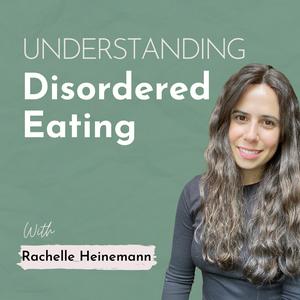From the Vault: Food and Desire with Dr. Judith Brisman [Episode 73]
We’re kicking off our summer throwback series with an episode that’s just too good not to share again. While we take a little summer break, we’ll be rereleasing some of our most powerful and thought-provoking conversations—and this one tops the list. Originally aired as Episode 73, this conversation with Dr. Judith Brisman is one of those rich, soul-stirring interviews that stay with you long after it ends. Dr. Brisman is an icon in the eating disorder treatment world. With over 35 years in the field and deep roots in psychoanalytic thought, she brings both clinical depth and human compassion to the most complex questions about food, desire, and emotion. In this conversation, we explore why we turn to food to manage our feelings, how disordered eating often becomes the language of our unmet emotional needs, and what happens within family systems when an eating disorder is present. Dr. Brisman helps us understand not just the "what" but the "why" behind it all, offering a compassionate and grounded approach to recovery that emphasizes self-discovery, choice, and relational repair. In this episode, we’re talking about: How Dr. Judith Brisman became a pioneer in the treatment of eating disorders by blending behavioral work with psychoanalysis. How food becomes symbolic for desire and the complex ways we try to manage our wants and needs through eating behaviors. The link between emotional regulation and disordered eating, including compelling patient stories that bring theory to life. The role of family dynamics in shaping (and healing) disordered eating patterns. How feelings like anger, helplessness, and fear often get hidden behind food behaviors—and how therapy can bring these to light. Why recovery is not just about stopping behaviors, but about uncovering the inner voices and desires we’ve been afraid to face. What family-based treatment looks like and how parental roles and patterns can both support and hinder recovery. How to use moments of emotional overwhelm—like the urge to binge or restrict—as doorways into deeper self-understanding. How simple questions like “What do you want to eat?” can begin the process of helping someone find their voice again. Tweetable Quotes “Families all get into patterns, some of which work, some of which don’t work. An eating disorder in the family is an opportunity to say, okay, what might need to be changed right now? What might need to be inspected?” – Dr. Judith Brisman “We don’t just see a parent in their role, and a child in their role; we see everybody in their roles, and how the dynamics come together.” – Rachelle Heinemann “Knowing [your emotions and patterns] allows for choice.” – Dr. Judith Brisman “It’s not so important to identify the cause of the eating disorder… maybe it’s interesting, but that's not going to end all or be the key… It’s more about what’s happening today, the identification, and what choice that provides.” – Rachelle Heinemann Resources Dr. Judith Brisman’s Website Surviving an Eating Disorder: Strategies for Families and Friends Grab my Journal Prompts Here! Looking for a speaker for an upcoming event? Let’s chat! Accepting new clients in July - Find out if we're a good fit! LEAVE A REVIEW + help someone who may need this podcast by sharing this episode. Be sure to sign up for my weekly newsletter here! You can connect with me on Instagram @rachelleheinemann, through my website www.rachelleheinemann.com, or email me directly at
[email protected]
